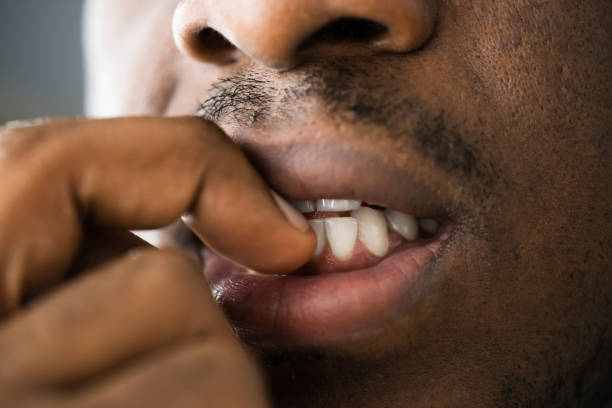

Dangers Of Nail Biting
Nail biting is an oral compulsive habit of biting one’s fingernails. It is sometimes described as a parafunctional activity, other than speaking, eating or drinking. It is very common, especially among children.
Most people begin biting their nails during childhood, after the age of 3 or 4. Many children outgrow the habit but some children who have a habit of sucking their thumb or finger may later adopt nail biting in its place. Nail biting can also begin during adolescence or adulthood- though a sudden nail biting habit can also be a side effect of medication.
No matter when the habit forms, it often begins as a coping mechanism in response to feeling nervous, bored, lonely or hungry. But it’s also commonly associated with emotional or psychological problems;
- (I) Anxiety
- (ii) Bedwetting
Pathological or severe, uncontrollable nail biting is the most common body- focused repetitive behaviour (BFRB)people with a BFRB disorder who bite their nails may also have other body- focused repetitive behaviours such as skin picking and hair pulling. These behavioural disorders are related to obsessive_ compulsive disorders, and some people have a genetic tendency toward them.
No matter when or why you start nail biting, the habit can be difficult to break once it forms and repeatedly biting your nails can cause some short-term issues to develop including:
- •Dental problems such as misalignment and chipped teeth.
- •Illness, as fingers pass bacteria to your mouth.
- •Mouth issues, including jaw pain and soft tissue injuries.
- •Skin infections.
- •Tissue damage to fingers, nails and cuticles.
The good news is that long-term damage from the habit is rare. But it does happen, especially if you swallow the bitten nails. You may also be ingesting bacteria that can lead to stomach or intestinal infection.
The following recommendation helps you to stop biting your nails,
- (i)Keep your nails trimmed short.
- (ii)Apply bitter-tasting nail polish to your nails.
- (iii)Get regular manicures.
- (iv)Replace the nail biting habit with good practice.
- (v)Identify your triggers.
- (vi)Try to stop biting your nails gradually.
For some people, nail-biting may be a sign of a more serious psychological or emotional problem. If you have repeatedly tried to quit and the problem persists, consult a doctor. If you bite your nails and develop a skin or nail infection, consult a dermatologist.



No Comments